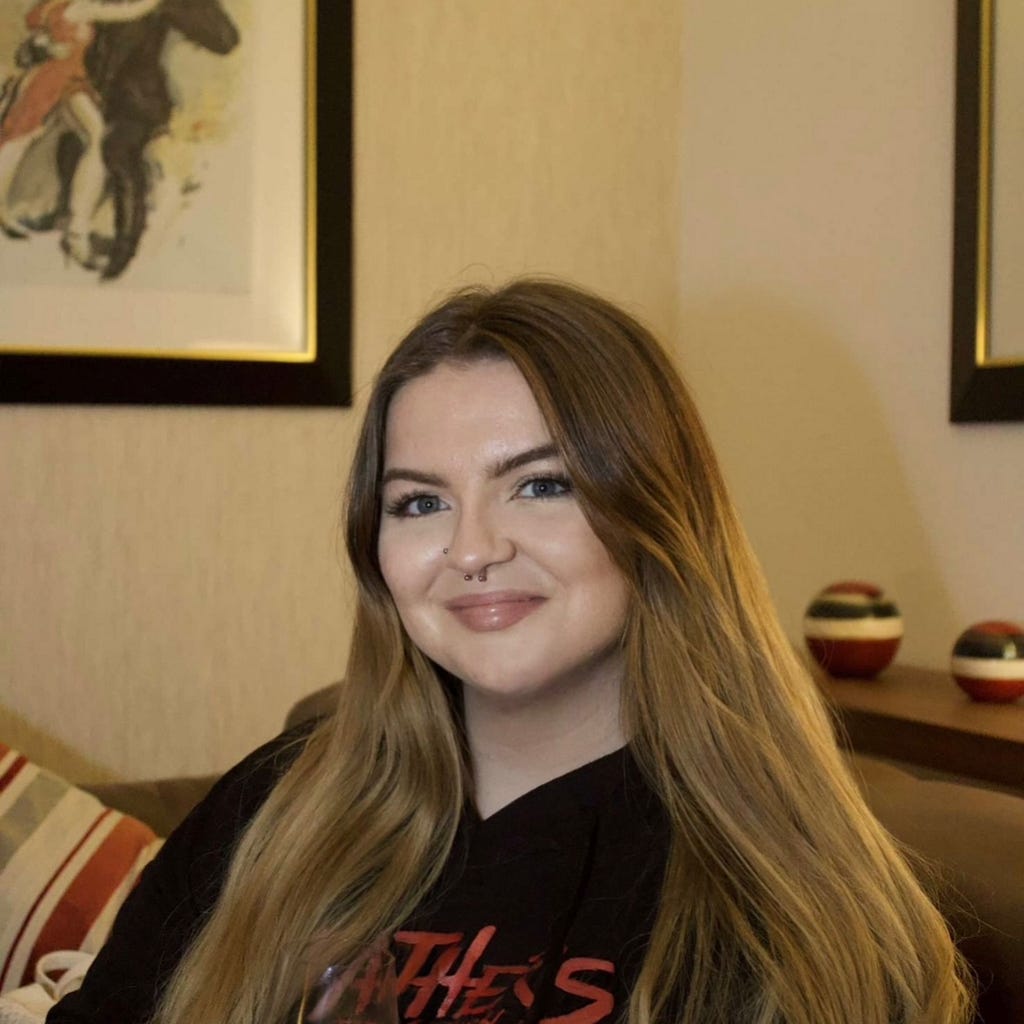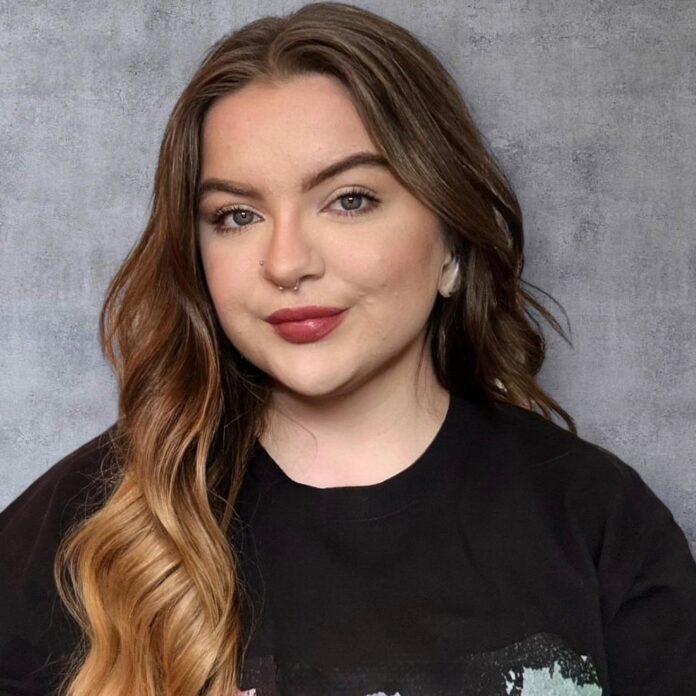An Interview With Dr. Kate Lund
Focus on what is within your control, don’t worry about things that aren’t.
Raising a child with ADHD comes with its own unique set of challenges and rewards. From managing symptoms to finding the right educational and social support, families often need to navigate a complex landscape. How do families create a balanced, supportive environment for their child? What strategies do they use to help their child thrive? As part of this interview series, we had the pleasure to interview Laurie Grace.
Laurie Grace is a passionate mental health and neurodiversity advocate, especially for those with ADHD. Having been diagnosed with ADHD herself, she uses her own personal experiences and research to help spread awareness, break stigmas and share useful information for those who have ADHD or know someone with it.
Thank you so much for joining us in this interview series! Before we start, our readers would love to “get to know you” a bit better. Can you tell us a bit about your background and your childhood backstory?
I was misdiagnosed and invalidated by the health system for years, which, unfortunately, is an all-too-common story, especially for women with any mental health concerns. I struggled through my entire school experience, but with the help of my support system, I was able to get through. It wasn’t until I was 20 that I was finally diagnosed with ADHD and was able to better understand myself and help others understand me, too. I now want to share everything I have learned over the years to help others like me.
Can you please give us your favorite “Life Lesson Quote”? Can you share how that was relevant to you in your life?
“There is hope, even when your brain tells you there isn’t.” — John Green. I read this quote as a teenager, and it has always stuck with me. Sometimes, we need to remember that our brains can lie to us
Let’s now shift to the main part of our discussion. Can you share with us the moment you realized your child might have ADHD?
My family and I never even considered that I could have ADHD due to the misconceptions surrounding it. We didn’t realize how many ways it could present. It was actually by accident that I happened to stumble upon an article while researching for an essay. The article detailed ADHD and its common symptoms, and as I read, I realized that it was as if the article were describing me! I began to research more and couldn’t believe that none of my teachers or any of the mental health professionals I had seen had ever considered it. I started following other advocates online and consistently related to a lot of what they said
What strategies have you found most effective in managing daily routines and ensuring consistency for your child with ADHD?
For those with ADHD, maintaining a routine can be very difficult. The ADHD brain thrives on novelty. Something that worked great for me as a child was introducing novelty into basic tasks to make them more appealing. For example, I had a huge chalkboard in my bedroom with colorful chalk where we would write down what I needed to do that day, such as making my bed, getting dressed, and eating breakfast. After I completed each task, I would cross it out on the chalkboard. Instead of just cleaning my room, my parents would time me to see how fast I could do it. Turning mundane tasks into a game made them much more doable for me. Another game-changer was discovering that I thrive when working in sprints rather than marathons, which is true for many people with ADHD. Having three 10-minute periods to get something done over a few hours works better for me than one 30-minute period.
How do you foster communication and understanding within your family about the challenges and strengths that come with ADHD?
This can be difficult; it’s hard for those without ADHD to fully understand the behaviors of children with the condition. Something I think is hugely important is creating a space where a child can be honest without feeling dismissed or judged. Educating yourself on the different ways ADHD can present will benefit a family significantly. Understanding that what may appear as misbehaving on the outside could actually be a child finding ways to self-regulate is crucial. There is a lot of misinformation about ADHD, especially regarding how it presents in girls. Make sure to get information from credible sources and cross-reference where you can.
Can you share a specific instance where you had to advocate for your child’s needs, either in school or another setting, and how you approached it?
Something that comes to mind when I think about how my family advocated for me when I couldn’t advocate for myself, is a time when I had a difficult teacher who would consistently call me stupid and insist, I wasn’t trying hard enough. My parents connected with a support teacher at my school, who arranged for me to be able to leave the class whenever I needed to come and speak with her. Knowing I had a safe place to go with someone I trusted at school made all the difference.
How do you help your child build self-esteem and confidence, especially in situations where they might feel different from their peers?
I struggled greatly with feeling like an outsider, even with my closest friends, because my brain worked differently. It helped me to recognize that while I might struggle in ways they don’t, I also had many unique strengths. For instance, I couldn’t sit and do a math exam, but I could write an essay on something I’m passionate about in 30 minutes. This is entirely due to my ADHD. It’s hard to understand that being different can be a good thing when you’re a child and all you want to do is fit in. Once I learned that there were many others like me, my confidence increased significantly. Not only were there people like me, but some had amazing careers — such as Simone Biles, who openly talks about living with ADHD. Focus on strengths, not struggles.

What are your “Top 5 Strategies to Navigate Life With a Child With ADHD”?
1 . Add Novelty wherever you can
2 . Education and understanding
3 . Work with ADHD not against it
4 . Focus on what is within your control, don’t worry about things that aren’t.
5 . Don’t be ashamed to reach out for help.
What role does self-care play for you as a parent in maintaining balance and resilience while supporting your child with ADHD?
Although I can’t answer this question from the perspective of a parent. I can give insight into what I want parents of children with ADHD to know. Focus on the things you can change, not what you can’t. You can’t change that your child has ADHD, you can however, help them make sense of it and develop healthy coping strategies.
Despite the challenges, families often find moments of triumph and resilience. Can you share a particularly proud moment or a breakthrough that your family has experienced in this journey?
One of our biggest breakthroughs was finally getting the right diagnosis. We had spent years seeing countless professionals, only to be constantly dismissed or misdiagnosed. We continued to fight even after being let down time and again, and I’m so glad we did because it meant my family and I finally had answers. I don’t know where I would be if I didn’t have a family that always believed, understood, and advocated for me.
Are there any books, podcasts, or other resources that have helped you understand or manage your condition better?
A podcast I love is “The ADHD Chatter Podcast” hosted by Alex Partridge. A book I enjoyed was “Dirty Laundry” by Richard Pink and Roxanne Emery.
We are very blessed that some very prominent names in Business, VC funding, Sports, and Entertainment read this column. Is there a person in the world, or in the US with whom you would love to have a private breakfast or lunch, and why? He or she might just see this if we tag them. 😊
Id’ love to pick Mel Robbins’ brain she’s been very open about her late diagnosis of ADHD and has such an interesting perspective on things.
How can our readers further follow your work online?
On Linkedin! https://www.linkedin.com/in/lauriegraceadvocacy/
Thank you for your time and thoughtful answers. I know many people will gain so much from hearing this.
About the Interviewer: Dr. Kate Lund is a licensed clinical psychologist, podcast host, best-selling author and Tedx Speaker. The power of resilience in extraordinary circumstances kept her thriving as a child. Dr. Lund now helps entrepreneurs, executives, parents, and athletes to see the possibility on the other side of struggle and move towards potential. Her goal is to help each person she works with to overcome their unique challenges and thrive within their own unique context.
Neurodiversity Advocate Laurie Grace: How Our Family Navigates Life With A Child With ADHD was originally published in Authority Magazine on Medium, where people are continuing the conversation by highlighting and responding to this story.


